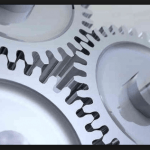Time is the most precious commodity in the world. Once it’s gone, you can never get it back. If we’re lucky, we’ll be around for about 80 years, which sounds like a long time, but it goes by in a hurry when you’re living a harried, stressed-out lifestyle continually for years on end.
I’ve always felt there had to be a better way, and we’ve worked very hard over the past few years to make our lives as simple and stress-free as possible. This is not an overnight process by any means; it really is a series of hundreds of tiny incremental steps that all lead to the ultimate goal of simplicity and stress-reduction.
Our Perspective
I’m sure there are still dozens of ways we waste time every day, but we really try to look at our lives with a critical eye to see how we can make things easier and more efficient in our day-to-day lives.
This might sound geeky (it probably is) and it might actually sound stressful to some people to have to pay that much attention when they just want to ‘live their lives’, but it’s really an investment in the future. Once you’ve identified and fixed an issue or found a process improvement to make things easier then it’s fixed for life!
Life just doesn’t have to be so difficult all the time, but we all seem to try our hardest to make it as stressful as possible! A common theme you’ll find throughout our site is that taking a series of small, incremental steps in nearly every aspect of life (and just taking action in general) will get you ahead of at least 95% of people.
Don’t get bogged down in the details all the time and try to make things more complex than you need to. If you’ve come here for rigorous analysis of every issue, that’s not this site. With our theme of “financial advice for the rest of us”, we understand that people are looking for simple ways to make their lives easier and less stressful and we try to keep that in mind with every article.
What underlies this entire article is that you have to save money and start building up a nest egg of investments so you never have to consider absolute dollars in a financial decision again – you just have to consider the value of something. I call this not “thinking like a poor person”, as people with money difficulties are always worried about the next dollar going out the door instead of searching for value in their purchases.
If I see something non-perishable on a great sale, let’s say aluminum foil for instance, I’ll buy a multiple-year supply at one time. I don’t care if this means I’m laying out $100+ for aluminum foil because it’ll save me money for years and, just as importantly, it isn’t somewhere in the back of our minds that we might run out of it and have to make an emergency run to the supermarket (this applies to any of the dozens of non-perishable items you need to keep a household running).
Automate Your Life
 The biggest thing you can do to reduce stress in your financial life is to automate everything possible. Anything you let linger on a mental ‘to-do list’ is yet another thing that clutters up your mind and leads to stress.
The biggest thing you can do to reduce stress in your financial life is to automate everything possible. Anything you let linger on a mental ‘to-do list’ is yet another thing that clutters up your mind and leads to stress.
You want to take your brain out of this (and every) process as much as possible, and this is especially true with investing. If you think in your brilliance you’ll be able to ‘time the market’ and make a killing, or you’ll somehow be able to pick that one stock that’s going to quadruple, then you’re out of your mind!
Automatic investments into your 401k and your regular after-tax investment accounts are the surest way to get rich, especially when you’re investing in some broad-based index funds with extremely low expense ratios. Everything else is just noise designed to get someone else rich.
Automating your banking and your bill paying are two aspects of this automation process that are invaluable. This is not the 1960’s where you need to sit down with your checkbook and laboriously write out your bills each month! You should spend zero seconds each month dealing with household bills as every single one of them should either be drafted out of your bank account or charged to your rewards credit card (assuming you don’t get hit with a fee of any sort).
The only bill you likely need to manually pay each month is your credit card bill, but since you’ll have all your spending on one card each month (hopefully to earn major bonuses as detailed in our Intro to Maximizing Travel Rewards article) this is just one internet login and a few checked boxes.
Along with this, another way to reduce stress in your financial life is to keep a nice cushion in your checking account. This might be different advice from what you’ve heard other places, but since you’re likely earning less than 1% interest on your cash savings, why not keep an extra $3,000 or so in your checking account so you don’t have to waste mental energy each month determining the perfect time to pay your bills or if you’ll have enough money in the account before your next paycheck is (direct) deposited before you need to pay your cable or electric bill?
Just Make a Decision Already!
One of the most interesting concepts I’ve read about is the Paradox of Choice, which loosely states that the more options we have to choose from the more stressed and overwhelmed we’ll be by the decision. Instead of luxuriating in your options, as is commonly thought, your brain shuts down from the difficulty of the decision.
In real life what this often means is that people agonize over even the smallest decisions because they want to get them absolutely right and make sure they are getting the “best” of everything.
I’ve seen friends spend 20 minutes looking through a dinner menu to make sure they’ve seen and thought about every single option and then debated which would be better. What a waste of mental energy and the time we could have otherwise been catching up and enjoying each other’s company! The ‘good enough’ theory would say just find something that you think sounds great and close the menu. You won’t ever go back and second guess yourself because there’s nothing to second guess!
There’s no perfect in life and when you start to realize that, you look at decision-making in such a clearer way. As mentioned above, your time is extremely valuable, and it shouldn’t be wasted on small decisions.
A Collection of Various General Tips
- Don’t spend any cash or waste time at ATMs. If you’re responsible with your credit card (re: pay it off in full EVERY month) you should be using it for every purchase. The additional benefits are: you can track spending, build your credit history, get a discount on every purchase through cash back or rewards.
- There’s no need to ever go to an actual bank. Everything can be done online or with your phone, including depositing checks.
- Organize all your paperwork and bills in a nice sturdy filing cabinet. You should have folders for every bill, your tax returns, insurance policies, etc. Don’t ever waste time sorting through huge piles of documents – just spend 30 minutes one day setting up folders and you’re set for life.
- Save all your essential documents in a fireproof safe. You won’t ever have to search for your marriage license, birth certificates or wills – you’ll automatically know where they are.
- We had an issue with mail and especially magazines piling up in our kitchen, so Laura in her infinite wisdom bought a set of three hanging wall files and installed them in our kitchen pantry. One is for Laura’s mail to keep, one for mine and one for magazines. We also hang a large plastic bag for all our items to shred. So each day’s mail is sorted immediately and doesn’t pile up. This $10 purchase made our lives dramatically better!
- Instead of going to yet another store, just buy everything through Amazon.com when you can get to the $25 threshold for free shipping. Why waste precious hours shopping when you’re only going to be enticed to buy more worthless stuff? Get it delivered free and order from the comfort of your home.
- Keep a spreadsheet that lists all the major due dates of important items throughout the year so you aren’t constantly worried you’ll miss a deadline. I can never seem to remember when we pay our life insurance bills and I’m constantly worried we’re going to miss it. So finally I wrote it down this year and included some other important items and now I’m set mentally.
- De-clutter your house and stop buying so much useless garbage! Our house, especially with two young daughters, was a mess. It bothered me constantly to see every closet full of stuff we never used and piles of random stuff strewn throughout each room. Laura and I went through one closet at a time over the course of a few weeks and now our house is basically clutter free. Since we’ve made a point to not buy any more useless stuff, it won’t ever get cluttered again and we won’t waste valuable weekend family time organizing stuff we don’t use!
- The book Don’t Sweat the Small Stuff – and it’s all small stuff by Richard Carlson was a real game-changer for me. I used to be the typical Type-A personality who was obsessed with winning and always needed to argue just to prove how smart I was. After reading this book I really took a step back and re-examined my life and it led to profound change. I try to read this book each year just to keep it fresh in my mind and I recommend everyone purchase it.
- When cooking, you should always make a meal last for at least two nights. It’s so much easier to cook three meals a week that last for seven than to have to stress about what to cook each night.
- Another cooking option is to make large batches of food with the intent of freezing it all into one-dinner portions. Laura recently cooked up a number of pounds of chicken and froze them into six dinner portions (each dinner will feed the two of us). Less than an hour of work and now we have six delicious dinners in the freezer for stress-free mid-week meals. We bought a freezer for our garage and it was one of the best purchases we’ve made recently!
- If you organize your household items and know what inventory levels you have, you’ll never run out of anything and have to make an emergency run to the store for shaving cream, contact solution or toilet paper. We buy 6-12 month quantities all at once so you just don’t have to constantly think about running out of them.
That’s just a random list of some of the ways we’ve tried to make life easier and more efficient. What tips do you have that work for you?
Richmond Savers has partnered with CardRatings for our coverage of credit card products. Richmond Savers and CardRatings may receive a commission from card issuers.

